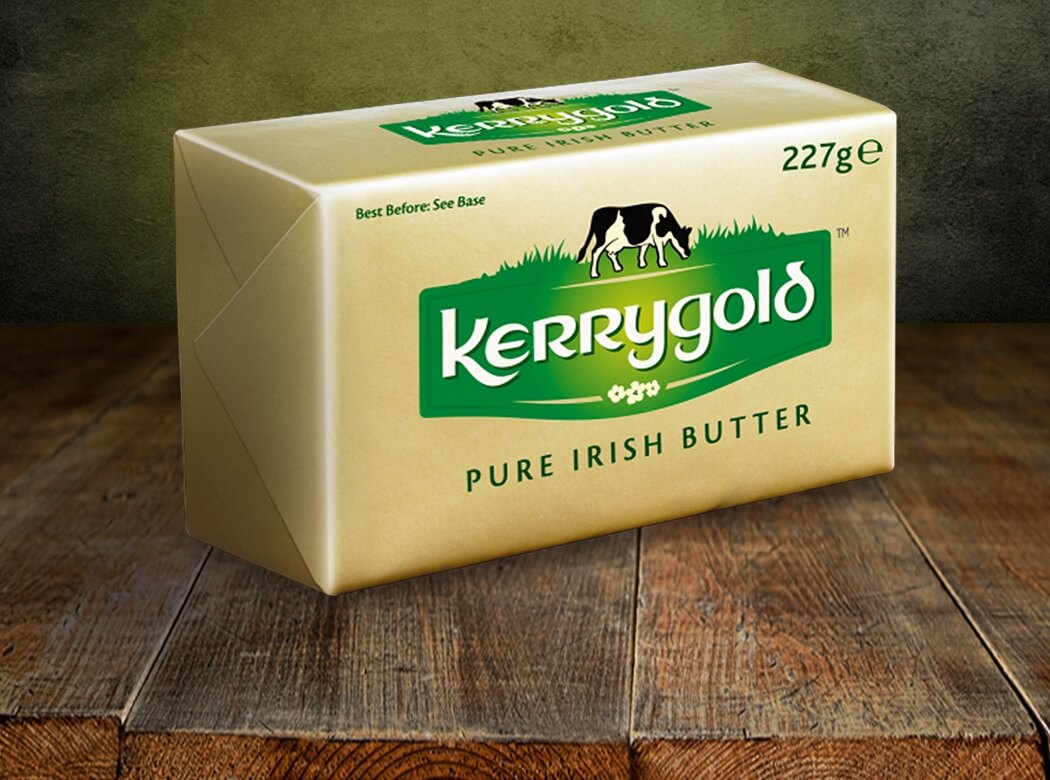Ireland has produced numerous iconic brands that have not only shaped the nation’s commercial landscape but have also become globally recognized symbols of Irish culture and innovation. From centuries-old breweries to modern food producers, these brands reflect Ireland’s rich heritage and entrepreneurial spirit.
Guinness: The Black Stuff
No discussion of Irish brands can begin without mentioning Guinness. Founded in 1759 by Arthur Guinness at St. James’s Gate Brewery in Dublin, Guinness has become synonymous with Ireland itself. Arthur famously signed a 9,000-year lease on the brewery for £45 per year, displaying remarkable confidence in his product’s future. The company’s signature stout was first brewed in 1759, and its unique brewing process, including the famous “perfect pour” that takes exactly 119.5 seconds, has become legendary. Today, Guinness is consumed in over 150 countries and remains Ireland’s most successful brand export.
Kerrygold: The Golden Standard
Launched in 1962, Kerrygold butter has become Ireland’s most successful food brand. Created by Sir Anthony O’Reilly of An Bord Bainne (now Ornua), Kerrygold capitalized on Ireland’s grass-fed dairy farming tradition. The brand’s success stems from its commitment to traditional farming methods, where cows graze on lush Irish pastures for up to 300 days a year, producing naturally golden butter rich in beta carotene. Kerrygold is now the second-best-selling butter brand in the United States and is distributed in over 80 countries.
Jameson Irish Whiskey: Spirit of Ireland
Established in 1780 by John Jameson in Dublin’s Bow Street, Jameson has become the world’s most famous Irish whiskey. The brand’s success lies in its triple-distillation process and commitment to quality ingredients, including Irish barley and pure water from the Dungourney River. By the turn of the 19th century, Jameson was producing one million gallons annually, making it one of the world’s largest whiskey producers. Today, it remains the best-selling Irish whiskey globally.
Waterford Crystal: Crafting Brilliance
Founded in 1783, Waterford Crystal became world-renowned for its fine crystal glassware. Despite facing financial difficulties in recent decades, the brand maintains its reputation for exceptional quality and craftsmanship. Waterford Crystal has created numerous prestigious pieces, including the Times Square New Year’s Eve Ball and chandeliers for Westminster Abbey. Though production methods have modernized, the company still employs traditional craft techniques passed down through generations.
Avoca: Weaving History
Established in 1723, Avoca is one of the world’s oldest surviving manufacturing companies and Ireland’s oldest working mill. Beginning as a cooperative weaving mill, Avoca has evolved into a lifestyle brand encompassing clothing, homeware, and food. The company’s colorful throws and blankets, handwoven at the original mill in County Wicklow, have become coveted items worldwide, while its cafés and stores represent modern Irish hospitality and design.
Barry’s Tea: A Perfect Cuppa
Founded in 1901 by James J. Barry in Cork, Barry’s Tea has become an integral part of Irish daily life. Originally a small tea shop, the company grew through its commitment to quality blending and strong relationships with tea growers. Barry’s Gold Blend, launched in the 1960s, remains Ireland’s most popular tea. The company still sources, blends, and packs its tea in Cork, maintaining its connection to its Irish roots.
Tayto: Ireland’s Favorite Crisp
Established in 1954 by Joe “Spud” Murphy, Tayto revolutionized the snack food industry by creating the world’s first flavored potato chips – Cheese & Onion. Based in County Meath, Tayto’s mascot “Mr. Tayto” has become a beloved Irish cultural icon. The brand’s popularity led to the creation of Tayto Park (now Emerald Park), Ireland’s only theme park, which opened in 2010.
Aran Sweaters: Woven Heritage
Though not a single brand but rather a style, Aran sweaters represent one of Ireland’s most distinctive textile traditions. Originating from the Aran Islands off Ireland’s west coast, these distinctive wool sweaters feature complex cable patterns that have become symbols of Irish craft heritage. Today, companies like Inis Meáin Knitting Company continue this tradition while adapting to contemporary fashion demands.
Carrolls Irish Gifts: Tourist Treasure
Founded in 1982, Carrolls Irish Gifts has become Ireland’s largest retailer of Irish souvenirs and gifts. While younger than many traditional Irish brands, it has successfully commercialized Irish cultural symbols and crafts, making them accessible to the millions of tourists who visit Ireland annually.
Flahavan’s: Morning Tradition
Operating from the same site since 1785, Flahavan’s is Ireland’s oldest family-owned food company. Their oatmeal products, particularly their iconic porridge oats, have been breakfast staples for generations of Irish families. The company still uses traditional slow-milling methods at their mill in Kilmacthomas, County Waterford.
These Irish brands share common characteristics that have contributed to their longevity and success: a commitment to quality, strong connections to Irish heritage and tradition, and the ability to adapt to changing markets while maintaining their authentic character. Many have survived centuries of economic and social change, wars, and global competition, emerging as stronger and more relevant brands.
Their success also reflects the strong relationship between Irish brands and national identity. These companies have not only provided products but have helped shape Ireland’s image globally, contributing to the country’s reputation for quality, craftsmanship, and traditional values while embracing innovation and modern business practices.
In an era of global brands and mass production, these distinctively Irish companies continue to thrive by maintaining their unique characteristics and strong cultural connections while adapting to contemporary market demands. They serve as examples of how traditional brands can remain relevant and successful in the modern global marketplace while staying true to their heritage and values.


